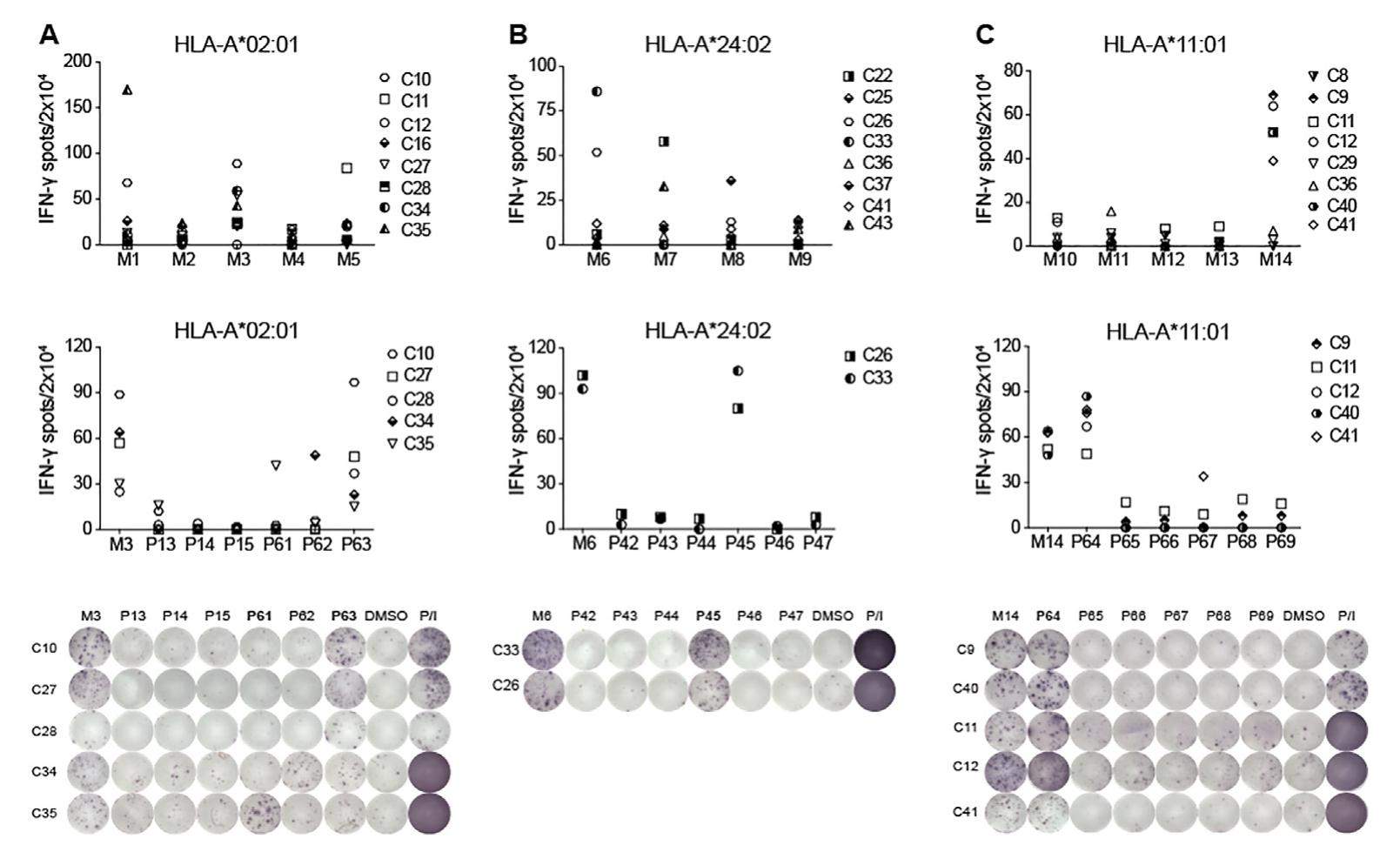
Identification of cross-reactive CD8+ T cell receptors with high functional avidity to a SARS-CoV-2 immunodominant epitope and its natural mutant variants


Despite the growing knowledge of T cell responses in COVID-19 patients, there is a lack of detailed characterizations for T cell-antigen interactions and T cell functions. Here, with a predicted peptide library from SARS-CoV-2 S and N proteins, we found that specific CD8+ T cell responses were identified in over 75% of COVID-19 convalescent patients (15/20) and an epitope from the N protein, N361-369 (KTFPPTEPK), was the most dominant epitope from our selected peptide library. Importantly, we discovered 2 N361-369-specific T cell receptors (TCRs) with high functional avidity that were independent of the CD8 co-receptor. These TCRs exhibited complementary cross-reactivity to several presently reported N361-369 mutant variants, as to the wild-type epitope. Further, the natural functions of these TCRs in the cytotoxic immunity against SARS-CoV-2 were determined with dendritic cells (DCs) and the lung organoid model. We found that the N361-369 epitope could be normally processed and endogenously presented by these different types of antigen presenting cells, to elicit successful activation and effective cytotoxicity of CD8+ T cells ex vivo. Our study evidenced potential mechanisms of cellular immunity to SARS-CoV-2, and illuminated potential ways of viral clearance in COVID-19 patients. These results indicate that utilizing CD8-independent TCRs against SARS-CoV-2-associated antigens may provide functional superiority that is beneficial for the adoptive cell immunotherapies based on natural or genetically engineered T cells. Additionally, this information is highly relevant for the development of the next-generation vaccines with protections against continuously emerged SARS-CoV-2 mutant strains.
